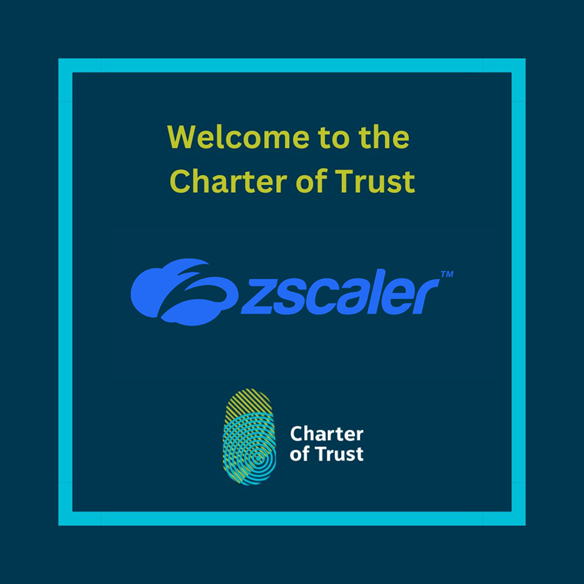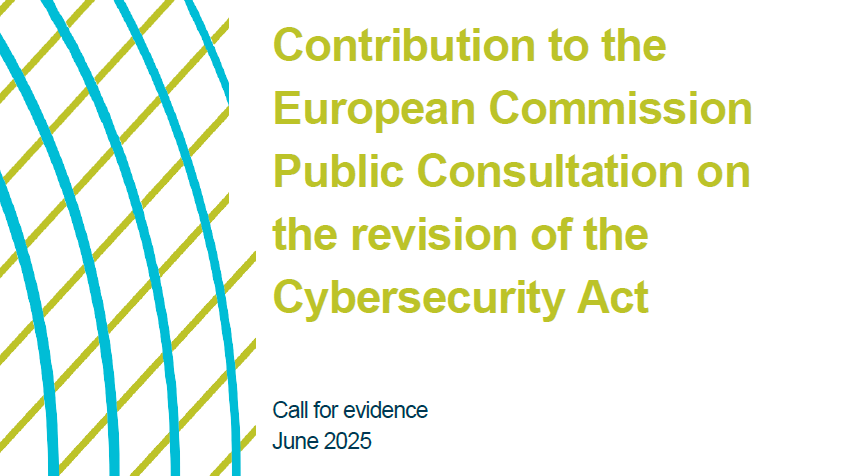The Charter-of-Trust (CoT) partners have agreed to deliver next-generation products with preset cybersecurity, following a clear “Security by Default” philosophy.
At present, there are no uniform regulations governing this issue – many products leave the factory solely dependent on safety systems that do not provide comprehensive protection. Users often have to adjust security settings afterward. As a first step, the Charter partner companies have now defined which security features should be present and activated by default in next-generation products – ranging from strong authentication features to a unique product identity and the requirement that passwords must be changed upon first use.
The CoT partners also believe that no undocumented functionalities or possibilities for remote connection should be part of initial device setup – another aspect that is not yet a general rule today. All these requirements are now being rolled out step by step within the relevant portfolios of the Charter of Trust member companies.
“Cybersecurity is a key ingredient for trust of our customers in all our businesses offering digitally connected products. It is also the basis for sustainable success and the foundation of a strong ecosystem “, says Roland Busch, deputy CEO, CTO, CHRO and Managing Board Member of Siemens AG.
At the Munich Security Conference in February 2018, Siemens and eight partners from the industrial sector launched a joint charter for more cybersecurity for the first time. Two years after signing, the Charter of Trust has grown to 17 members. In addition to Siemens and the Munich Security Conference, the companies AES, Airbus, Allianz, Atos, Cisco, Dell Technologies, Deutsche Telekom, IBM, Mitsubishi Heavy Industries, NXP Semiconductors, SGS, Total and TÜV SÜD have committed themselves to the document. Furthermore, the Federal Office for Information Security (BSI), the National Cryptologic Center (CCN) and Graz University of Technology are accompanying the Charter’s work as Associated Partners. Today, the Charter of Trust is gaining two new members in NTT, a Japan-origin IT consulting and managed service provider, and the German semiconductor manufacturer Infineon Technologies AG. With the Hasso Plattner Institute for Digital Engineering GmbH (HPI), one of Germany’s leading IT institutes is now also contributing to the cybersecurity initiative as an Associated Partner.
Last year, the partners already agreed on 17 concrete baseline requirements with which they can increase the security of their supply chains. Since then, numerous suppliers of CoT companies have already committed to meeting these requirements.
Siemens has been introducing them step-by-step since February 15, 2019, and they have been internationally anchored and made binding as part of the general ordering conditions. This primarily affects suppliers of safety-critical components – such as software, processors or electronic components. Existing suppliers are expected to implement the requirements gradually if they are not already being fulfilled. The aim is to better protect the digital supply chain from hacks. The baseline requirements include, for example, that suppliers incorporate safety standards, processes and methods into their products or services. This concerns both technical features and organizational measures relevant to products, services and the corresponding IT infrastructure. The goal here is to reduce risks caused by weaknesses in the software and malware. Suppliers bear the responsibility to carry out regular safety checks, tests and corrections. The CoT partners have agreed to these requirements for themselves as well. The supply chain is the weakest point in a company’s cybersecurity ecosystem: The origin of 60 percent of cyberattacks can be traced back to parts of the supply chain, and in 60% of those cyber incidents, it is smaller companies who are affected, according to a Verizon study.
The CoT partners have also decided to promote education and training on cybersecurity issues, including for small and medium-sized enterprises (SMEs), which are increasingly targeted by cyberattacks. For example, in Germany, the Charter of Trust partnered with the “Alliance for Cybersecurity,” and developed a set of materials with an emergency card that explains quickly and easily what to do in the event of a cyberattack. In addition, the partners have developed further training material that are made available to SMEs free of charge. In doing so, they aim to prevent cybercrime, but above all to highlight the opportunities for effective cybersecurity measures. The partners have developed a special cybersecurity simulation for schools to give students and teachers a clear and easily digestible overview of the challenges.
According to the Center for Strategic and International Studies, cyberattacks will cause more than €500 billion in global damage in 2018. And the threats are constantly increasing in a digitalized world: According to Cisco, there are around 50 billion networked devices in use in 2020 – double the amount than in 2015, and the figure is expected to rise to 500 billion by 2030.


You may also like

Charter of Trust Welcomes Zscaler
Zscaler is a leading cloud enterprise security provider helping global businesses accelerate their digital transformation by becoming more agile, efficient, resilient, and secure.
With Zscaler as a partner in the Charter of Trust, we aim to strengthen global cyber resilience through trust – by fostering actionable collaboration between industry leaders, governments, and public-private platforms. Zscaler brings robust expertise and innovation to the table, making it the ideal partner to drive this mission forward.
“Zscaler is excited to drive meaningful change alongside our new partners, laying a foundation of trust essential for successful digital transformation,” said Sam Curry, Zscaler CISO. “In today’s world, the need for reducing inherent trust and default access has never been greater. To truly stay ahead of ever-evolving threats, we must unite as a coalition of practitioners. Cyber attackers aren’t taking breaks, and with advancements like artificial intelligence, quantum cryptography, and emerging technologies on the horizon, collaboration is the key to securing the future.”
“We are proud to welcome Zscaler to the Charter of Trust. Their focus on cybersecurity innovation and commitment to openness reflect our shared ambition to create a safer, more resilient digital future. Together, we’ll strengthen trust, transparency, and security across the global digital landscape.” highlighted Dr. Summit Chada, Charter of Trust Co-Chair and COO Group Security & Business Lines CISO at Atos.
“With Zscaler as a Partner of the Charter of Trust, we believe that we can strengthen the global commitment to secure digital transformation by combining technological innovation with the Charter of Trust’s collaborative approach to cybersecurity leadership.” Ralf Schneider, Charter of Trust Co-Chair and Senior Fellow and Head of Cybersecurity and NextGenIT Think Tank at Allianz SE, welcomes Zscaler to the Charter of Trust.
We are excited to join forces and work together to advance digital trust and security across industries.

Contribution to the EU Commission Public Consultation on the revision of the Cybersecurity Act
We support Policy Option 2, which focuses on targeted regulatory measures that address key challenges without creating unnecessary complexity. In this context, we emphasize the need to enhance the role and resources of ENISA, to ensure effective implementation of both current legislation and the European Cybersecurity Certification Framework (ECCF).
Our recommendations aim to improve transparency, collaboration, and efficiency across the EU’s cybersecurity landscape. These include:
- Introducing clear timelines for the development of certification schemes.
- Enhancing stakeholder engagement throughout the process.
- Establishing more structured communication channels between ENISA, the Stakeholder Cybersecurity Certification Group (SCCG), and sectoral ISACs (Information Sharing and Analysis Centers).
We call for a stronger ECCF, one that is transparent, inclusive, and aligned with international standards to foster global interoperability and ease compliance for organizations across borders. Equally critical is the harmonization of certification practices across EU member states and the mutual recognition of certifications to minimize regulatory fragmentation.
The Charter of Trust advocates for technically robust, standards-based certification schemes, with well-defined roles and responsibilities. We also stress the need for clarity on the interplay between voluntary and mandatory certifications, particularly in relation to the upcoming Cyber Resilience Act (CRA).
To streamline compliance and reduce administrative burden, we propose a unified, risk-based incident reporting regime that consolidates requirements under regulations such as NIS2, CRA, GDPR, and DORA. This would not only simplify reporting for organizations but also enhance the EU’s overall cyber resilience. In addition, we recommend incorporating liability protections and grace periods for incident disclosure.
Finally, we urge the Commission to strengthen supply chain security by adopting a risk-based classification approach and establishing baseline cybersecurity requirements for ICT suppliers.
The Charter of Trust remains fully committed to supporting the European Commission in shaping a secure, resilient, and trusted digital future for Europe. We look forward to continued collaboration in building a cybersecurity framework that meets the needs of all stakeholders, today and in the years to come.




